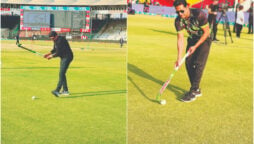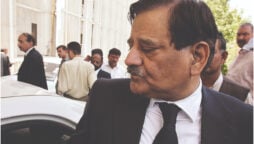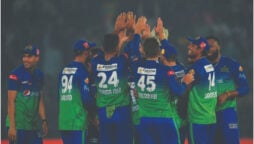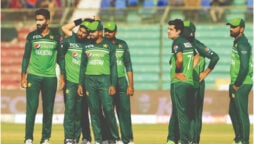Synopsis
“Politics is still the No. 1 sport in town,” and that literally is the case in Pakistan

Political stability is a term commonly used nowadays. It is something that’s being discussed from streets to restaurants to drawing rooms to current affairs programmes.
The emphasis of the discussion is how it is the backbone of any country’s economic condition and in all honesty, it is largely true. The more stable the government is, the easier it is to convince international investors to bring their money into the country and invest, which in return will create jobs and start an economic cycle.
Unfortunately, for a country like Pakistan, political stability is almost becoming a distant dream, always waiting to be completed in the coming years. The only nuclear power in the Muslim world is deprived of any sustainable growth for a long time.
Till the early 2000s, with the internet a luxury of the upper class and only one television channel available in the majority of the country, the narrative was easier to control.
Fast forwarding it and after 20 years, things have changed for the worse, not for good. The emergence of 50-odd news channels, telling stories to please their viewers instead of unbiased, and the use of social media platforms, especially Twitter, has created polarisation in society like it never was.
It feels like the land of the pure has come to a point where everything is now based on whether you are ‘with us or against us’.
The temperament of the masses is reaching the tipping point and with every passing hour, many are fearing for the worse to happen.
“Politics should not interfere with sports. And sports should impact politics,” was the quote of Russian President Vladimir Putin and in an ideal world, that’s how it should be.
But in the real world, it is completely opposite as only politics is always the one impacting sports. Take a look at how the world reacted once Russia invaded Ukraine.
The world sporting bodies have barred Russia’s national teams, club teams and athletes from participating in different events over a completely political matter.
In Pakistan, we are once again witnessing the same. In the last month or so, ever since the Pakistan Tehreek-e-Insaf (PTI)-led government was ousted through a historic vote of no confidence and replaced by a coalition government comprised of as many as 13 parties, sporting activities in the country came to a standstill with people still waiting for a directive from the higher ups regarding the future of the sport and in some cases, the future of the head of the sporting body.
The situation reminds a famous quote from American journalist Bill Kurtis where he stated that: “Politics is still the No. 1 sport in town,” and that literally is the case in Pakistan.
Cricketer-turned-politician and former premier Imran is out on the streets against the newly-formed government and has already called for a long march towards the capital at the end of May.
That is likely to directly impact the upcoming West Indies tour of Pakistan where the sides were scheduled to play three One-Day International and all were supposed to be hosted by Rawalpindi.
It is because of this reason that numerous media reports suggest that the Pakistan Cricket Board (PCB) are already evaluating different options for the series, including Karachi and Multan.
This was not the first time when politics affected sport directly in Pakistan. Earlier this year, the limited-overs series against Australia was also shifted to Lahore due to political uncertainty in the capital.
In a year where there is a T20 World Cup coming up in November followed by a 50-over World Cup next year, these developments are catastrophic for a team full of superstars.
But cricket is not the only sport affected by this turmoil. Last year, the Pakistan Football Federation (PFF) headquarter was taken hostage by a group led by members of both the opposition and government. Those unprecedented developments led to the FIFA ban that is still to be lifted.
In the field of hockey, no one is actually talking about how Pakistan national team is doing on their ongoing tour of Europe because well, there is just too much drama on the streets.
People in this part of the world look at the west and admire how they are ahead in everything, which obviously includes sporting activities.
They often talk about how different issues stop Pakistan from reaching the highs it should but ultimately failed to do so.
But interestingly, one of the core reasons they always overlooked is how political stability is perhaps the biggest reason for western countries’ success on the field because that’s something never guaranteed here, at least in Pakistan.
“Politics is comparable to boxing. The only thing is that in politics there are basically no rules,” was the quote of the former unified WBA (Super), IBF, WBO, and IBO champion Wladimir Klitschko and it seems like Pakistani politicians have taken those words a little too seriously.
They started using the country as the ring and the masses as their punching bag, not thinking about giving the people they deserve here in any sense.
From former Prime Minister Nawaz Sharif to the current head of the government and his brother Shehbaz and from former President Asif Ali Zardari to PTI chairman and former all-rounder Imran, no one brought the stability the youth of this country deserves to shine on the field.
Sports remained a luxury in the past and there is no reason to believe that will change, no matter who will become the head of the state in the coming months.
Catch all the Breaking News Event and Latest News Updates on The BOL News
Download The BOL News App to get the Daily News Update & Live News.












 Read the complete story text.
Read the complete story text. Listen to audio of the story.
Listen to audio of the story.